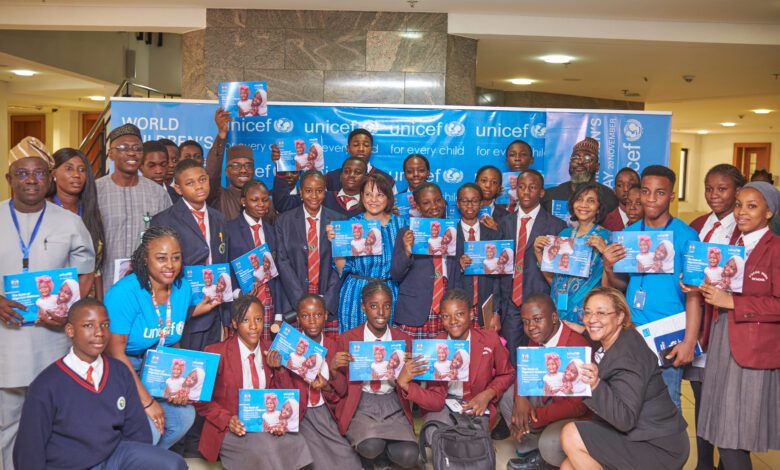
A summary of the 2024 Situational Analysis of Children and Adolescents in Nigeria (SitAn) revealed that 40% of the 110 million children in the country; approximately 44 million children were stunted.
The report on the state of Nigeria’s Children was launched on Wednesday in Abuja as part of activities to mark this year’s World Children’s Day.
TheFact Daily gathered that, World Children’s Day, celebrated annually on November 20th, emphasizes the importance of children’s well-being and rights. The 2024 theme, “Listen to the Future,” underscores the need to invest in education, safety, and healthy development for every child.
In her presentation on Key Insights into the Situation of Children in Nigeria, UNICEF Deputy Representative, Rownak Khan acknowledged that the country had made some progress in protecting children’s rights but there were room for improvement.
“A lot of progress has been made, the children under 1 mortality and under 5 mortality has decreased by 27% and 43% compared to the year 1990, but when we look at the new mortality, that is the children were born and die within the first four weeks of their lives, that gap is quite flat, it has not improved.
“Out of 1000 children born, 41 of them never live beyond 28 days. This is really a sobering figure for Nigeria”, she said.
Another disturbing figure Khan noted was stunting; “40% of the children in Nigeria are stunted; this means they are short for their age.
“When they are stunted due to chronic malnutrition, they don’t have the right cognitive function, they don’t learn well in school and which allows them not to retain their education in the school and so they drop out of the school and they go through the cycle of unprotected environment through our their lives.
“This is something we need to think seriously how to invest at the beginning of their lives”, she stated.
The UNICEF Deputy Representative in Nigeria further disclosed that, more than 2 million children have not received any dose of vaccine, “when children are not vaccinated, they have diseases that could easily be prevented like Diphtheria, measles and other diseases. This is a basic right we are denying them in Nigeria”, she said.
Khan therefore called for more investments to provide basic services for the children, ” we need public spending,
The current public spending on education and health 7% for education and 5% for health which is far below the international benchmark for 20% and 15% respectively, so there is a lot to do”.
She however, stated that the investments would only make a significant difference in the first 1000 days of the child’s life.
“It’s not only about spending, but when to spend, if we spend on children when they are already 10 years old, it is very late. We’re advocating to spend for children when we spend in the first 1000 days of the child, we get the best for children”, she said.
Reacting to the report, the Minister of Budget and Economic Planning, Senator Abubakar Bagudu, represented by the Permanent Secretary of the Ministry, Emeka Vitalis-Obi stated, “although the situation of children has progressed in most areas, the figures still reveal causes for concern.
“The launch of this report coinciding with the commemoration of World Children’s Day shows that children in Nigeria are a priority of the government. Under President Tinubu’s Renewed Hope Agenda, we are committed to investing in social protection and health to improve the situation of children in the country.”
On her part, UNICEF Representative in Nigeria, Cristian Munduate averred that findings of the report served as a wake up call and assured of UNICEF’s commitment:
“This updated SitAn serves as a wake-up call for all of us. Every statistic in this report represents a child who deserves a better life. We must act decisively and collaboratively to change these realities.
“UNICEF remains dedicated to partnering with the Government of Nigeria to ensure that every child has access to quality healthcare, education, and protection. The present and future of Nigeria depends on the well-being of its children, and there is no time to lose”, Munduate said.
The updated SitAn, developed by the Ministry of Budget and Economic Planning, the National Bureau of Statistics with technical support from UNICEF, presents both the progress made in key areas and the significant challenges that remain.
Notable achievements include improved birth registration rates, a reduction in child mortality, and gains in childhood immunization coverage. However, the report also highlights persistent issues such as high poverty rates, inadequate access to quality education, poor nutrition, newborn mortality, and widespread violence affecting children.






